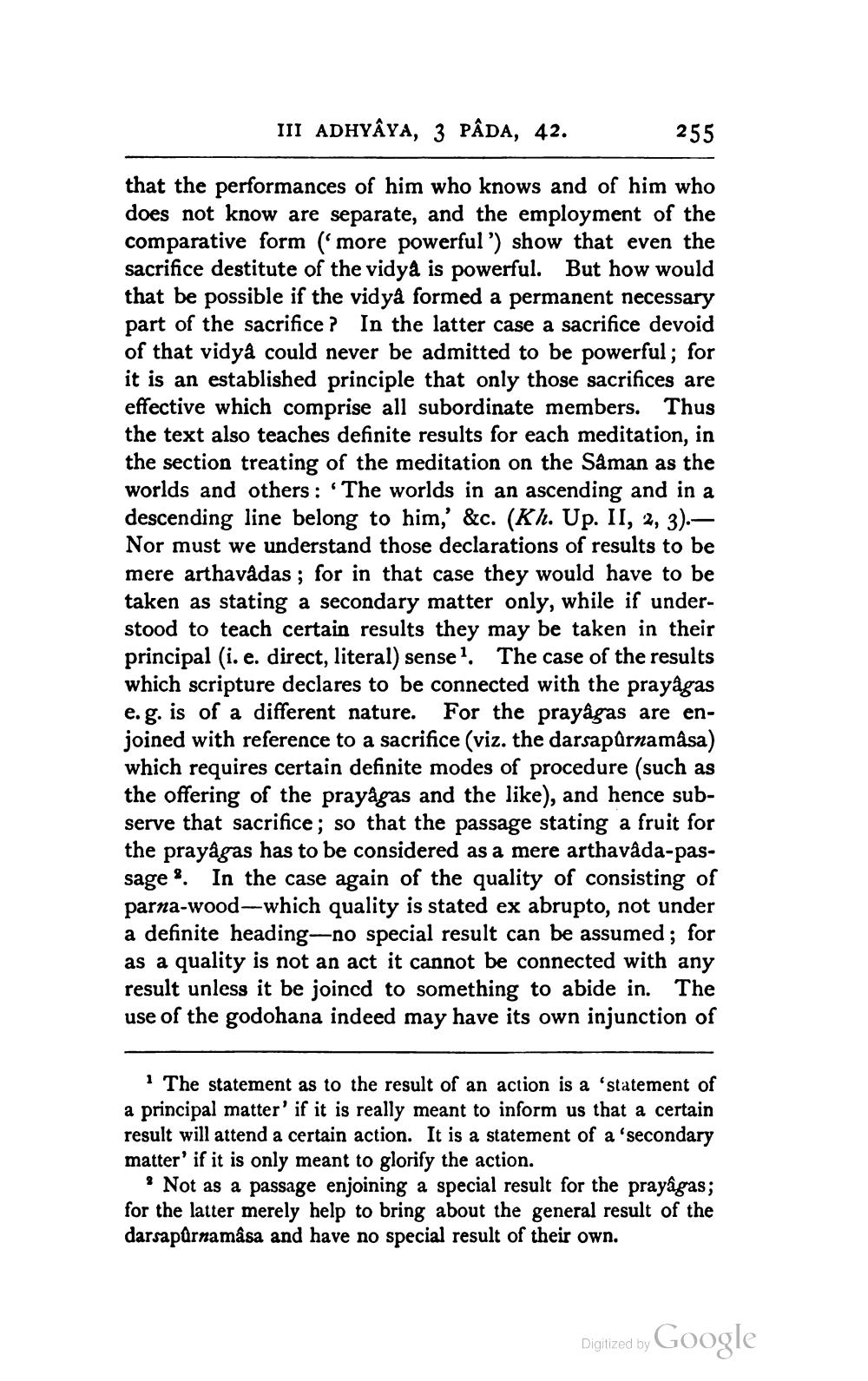________________
III ADHYAYA, 3 PÂDA, 42.
255
that the performances of him who knows and of him who does not know are separate, and the employment of the comparative form (more powerful ') show that even the sacrifice destitute of the vidya is powerful. But how would that be possible if the vidyå formed a permanent necessary part of the sacrifice? In the latter case a sacrifice devoid of that vidyà could never be admitted to be powerful; for it is an established principle that only those sacrifices are effective which comprise all subordinate members. Thus the text also teaches definite results for each meditation, in the section treating of the meditation on the Saman as the worlds and others : The worlds in an ascending and in a descending line belong to him,' &c. (Kh. Up. II, 2, 3).Nor must we understand those declarations of results to be mere arthavadas; for in that case they would have to be taken as stating a secondary matter only, while if understood to teach certain results they may be taken in their principal (i. e. direct, literal) sense 1. The case of the results which scripture declares to be connected with the prayagas e. g. is of a different nature. For the prayâgas are enjoined with reference to a sacrifice (viz. the darsapurnamasa) which requires certain definite modes of procedure (such as the offering of the prayågas and the like), and hence subserve that sacrifice; so that the passage stating a fruit for the prayâgas has to be considered as a mere arthavâda-passage. In the case again of the quality of consisting of parna-wood-which quality is stated ex abrupto, not under a definite heading—no special result can be assumed; for as a quality is not an act it cannot be connected with any result unless it be joined to something to abide in. The use of the godohana indeed may have its own injunction of
· The statement as to the result of an action is a 'statement of a principal matter' if it is really meant to inform us that a certain result will attend a certain action. It is a statement of a 'secondary matter' if it is only meant to glorify the action.
Not as a passage enjoining a special result for the prayâgas; for the latter merely help to bring about the general result of the darsapürnamasa and have no special result of their own.
Digitized by
Digilzed by Google




